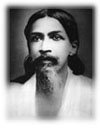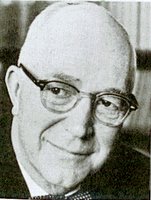Music Therapy
Music therapy is an useful technique to map personality of human being.
19. 7.07
Today, I met Professor J.J.Moreno, a noted music therapist, at the American Centre. He has given lecture on various applications of music on therapy and music therapy in different countries specially Africa, Indonesia and Pakistan. His website:
http://www.morenoinnermusic.com/

20.7.07
Prof. Moreno has demonstrated the followings today:
1. Guided imagery by music
2. No guided imagery only music
3. Music therapy in projecting self
4. Music therapy in psychodrama.
Really, it is a nice and new experience to me.
In guided imgagery, he has given importance on sailing boat on the river with the background of music. Initially, he tells us to imagine one red petal. The music has specific rhythm - low, high, low, very high, low, low,very low. After he has asked us about our feeling. One has said- "I am sailing boat on the river, moving to centre, gradually find lot of turmoil, then escape, moving to deep forest, and gradually returns to the origin".

In non guided imagery, just after music, he has asked us our feeling. I have noted that some participants felt some spiritual experience like meeting relatives who passed away. In the later one, he made us therapist and client following our sitting position. There were 50 participants, so 25 therapist and others are clients.
I have noted one nice web page on music therapy:
In the workshop, I act as therapist for 3 blind participants. In both
guided and non guided imagery, they experience losing some where.
Prof. by analysis has noted that they are getting peace experience by
using this imagery.
In psychodrama, I have seen how one lady expresses her inner
emotions, her tensions and her intense desire to come out from it.
21.7.07
In one word, Professor Moreno's workshop is excellent because of his non directive approach. Music therapy can be both directive and non directive. But his approach is non directive.
Non-Directive
Non-Directive therapist strives to provide an environment of empathy, unconditional positive regard, and acceptance. Therapists are trained to accept the client where they are at the moment.
It results overcoming all the blocks in different layers of consciousness. In the art therapy prog. our selection of crayons, drawing everything is guided by the imagery carried by the music. During mild music session, I have selected blue crayon and have drawn one boat on the river. I have planned to draw one full sun, but finally, I have not felt to draw it. Rather I have drawn half sun beaming within clouds. Initially, I started with white cloud but the music led me to think of river. Finally, i drew one boat without man sailing on the peace and quite river. Usually, I prefered to draw man, but I could not perform there.
In the next session, music moves from light to high tune, it moves from simple to complex. I initially drew one sun with yellow color, finally, I drew zig zag lines around the sun, I did not want to cover the sun, but finally, I drew zig zag lines over it.
Later Prof. asked us our experience and its effect on different characteristics of drawing. This is about music and art therapy.
Every one can not draw and can not play music. Yes, I am talking about the disabled persons. Prof. Moreno thought of them. He designed some instruments though which one disabled boy can beat drum, tambola, and others. Even they can draw using the designed tools.
By using SA RE GA MA - the Indian music system, he tried to develop concentration among the students having concentration difficulty.
The other interesting issue is application of music therapy in dance. Listening the music, we danced on the floor. One sr. professor danced well on the floor, and shared her feelings. She told that she never danced. As far as I know she maintained her dignity always, and everybody will be afraid to talk with her. But on the dance floor, we were stunned by her performance. She shared her beautiful experience. I never danced on the dance floor and specially in front of public. But I could not resist. In the dance therapy prog. we played client and therapist role. In this client followed therapist and next therapist followed client. I was the therapist of 4 blind persons. One of them told me that he did not want to dance due to bowel problem, but music forced him to dance. I touched the hands of blind persons for dancing. By dancing, I felt relaxed. This is my experience. I thought to dance everyday, but with whome ?
Prof. himself composed Indian Raga using Sa Re Ga Ma Pa. And it was just fusion of East and West.
Finally, Professor gave us completion certificate. And Mr. Anjan Basu of Step one foundation closed ceremony with vote of thanks.
How do you feel my experience? Do you have any question about other's and my performance, ask me and anlyse.





